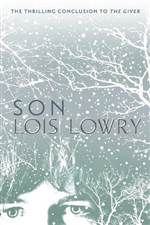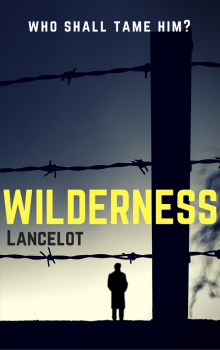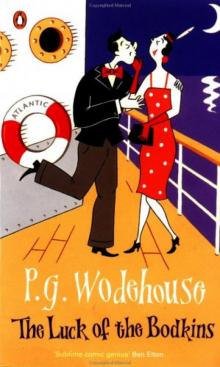The Castaways of the Flag


Author: Jules Verne
Category: Fiction
Published: a long time ago
Series:
View: 360
Read OnlineThis story is a sequel to "Their Island Home," which takes up the adventures of the Swiss Family Robinson at the place where the author of the original narrative dropped them.
"The Swiss Family Robinson" seems to have affected Jules Verne's literary bent as no other book ever did. It gave him that liking for the lonely island life as the basis of a yarn which is conspicuous in much of his work. In a preface to the story of which this is really a part he tells how firmly New Switzerland established itself in the fabric of his thoughts, till it became for him a real island inhabited by real people. At last he was compelled to write about it, and "Their Island Home" and "The Castaways of the Flag" are the result.
The youth of Europe -- many generations of it -- owes a big debt to the old romancer who worked for so many years in his turret room at Amiens to entertain it. From that room, with its many bookshelves, came volume after volume of adventure, mostly with a big ad-mixture of the scientific. Verne was not one of those who pile hairbreadth escapes one upon another till they become incredible. There are plenty of things happening in his books, but they are the sort of things that would happen, given the circumstances, and he explains why and how they chanced in the most convincing manner possible. In these days of submarines and aeroplanes it is interesting to read again the wonderful Frenchman's forecast of them in such books as "Twenty Thousand Leagues Under the Sea" and "The Clipper of the Clouds." "Round the World in Eighty Days" ---the task would be an easy one now, but at the time when he wrote it required great ingenuity to make it seem possible; and the end of that book is one of the most ingenious things in fiction, though it has for justification a simple geographical fact. Phileas Fogg was a day late, as he believed. He had apparently lost his wager. But, having gone round the world in the right direction, he had gained a day, and just won. If he had gone the other way he would have been two days late, for a day would have been lost to him --- cut right out of the calendar.
With the restoration of Fritz Zermatt and his wife Jenny, his brother Frank and the other Castaways of the Flag to their anxious and sorely tried relatives in New Switzerland, the story of "The Swiss Family Robinson" is brought to its proper end. Thereafter, the interest of their domestic life is merged in that of the growth of a young colony. Romance is merged in history and the romancer's work is finished. Jules Verne has here set the coping stone on the structure begun by Rudolph Wyss, and in "The Swiss Family Robinson," "Their Island Home" and "The Castaways of the Flag" we have, not a story and two sequels, but a complete trilogy which judges who survey it must pronounce very good.
A word may be permitted about this English version. Jules Verne is a master of pure narrative. His style is singularly limpid and his language is so simple that people with a very limited knowledge of French can read his stories in the original and miss very little of their substance. But to be able to read a book in one language and to translate it into another are very different things. The very simplicity of Jules Verne's French presents difficulties to one who would translate it into English. What the French call "idiotismes" abound in all Verne's writing, and there are few French authors to whose books it is so difficult to impart a really English air in English dress. Whatever the imperfections of these translations may be they cannot, however, mar very greatly the pleasure the stories themselves give to every reader.
"The Swiss Family Robinson" seems to have affected Jules Verne's literary bent as no other book ever did. It gave him that liking for the lonely island life as the basis of a yarn which is conspicuous in much of his work. In a preface to the story of which this is really a part he tells how firmly New Switzerland established itself in the fabric of his thoughts, till it became for him a real island inhabited by real people. At last he was compelled to write about it, and "Their Island Home" and "The Castaways of the Flag" are the result.
The youth of Europe -- many generations of it -- owes a big debt to the old romancer who worked for so many years in his turret room at Amiens to entertain it. From that room, with its many bookshelves, came volume after volume of adventure, mostly with a big ad-mixture of the scientific. Verne was not one of those who pile hairbreadth escapes one upon another till they become incredible. There are plenty of things happening in his books, but they are the sort of things that would happen, given the circumstances, and he explains why and how they chanced in the most convincing manner possible. In these days of submarines and aeroplanes it is interesting to read again the wonderful Frenchman's forecast of them in such books as "Twenty Thousand Leagues Under the Sea" and "The Clipper of the Clouds." "Round the World in Eighty Days" ---the task would be an easy one now, but at the time when he wrote it required great ingenuity to make it seem possible; and the end of that book is one of the most ingenious things in fiction, though it has for justification a simple geographical fact. Phileas Fogg was a day late, as he believed. He had apparently lost his wager. But, having gone round the world in the right direction, he had gained a day, and just won. If he had gone the other way he would have been two days late, for a day would have been lost to him --- cut right out of the calendar.
With the restoration of Fritz Zermatt and his wife Jenny, his brother Frank and the other Castaways of the Flag to their anxious and sorely tried relatives in New Switzerland, the story of "The Swiss Family Robinson" is brought to its proper end. Thereafter, the interest of their domestic life is merged in that of the growth of a young colony. Romance is merged in history and the romancer's work is finished. Jules Verne has here set the coping stone on the structure begun by Rudolph Wyss, and in "The Swiss Family Robinson," "Their Island Home" and "The Castaways of the Flag" we have, not a story and two sequels, but a complete trilogy which judges who survey it must pronounce very good.
A word may be permitted about this English version. Jules Verne is a master of pure narrative. His style is singularly limpid and his language is so simple that people with a very limited knowledge of French can read his stories in the original and miss very little of their substance. But to be able to read a book in one language and to translate it into another are very different things. The very simplicity of Jules Verne's French presents difficulties to one who would translate it into English. What the French call "idiotismes" abound in all Verne's writing, and there are few French authors to whose books it is so difficult to impart a really English air in English dress. Whatever the imperfections of these translations may be they cannot, however, mar very greatly the pleasure the stories themselves give to every reader.
 The Mutual Admiration Society
The Mutual Admiration Society Son
Son The Opposite of Fate
The Opposite of Fate The Adventure of the Bruce-Partington Plans
The Adventure of the Bruce-Partington Plans Black Butterflies
Black Butterflies Fighter
Fighter Wilderness
Wilderness The Luck of the Bodkins
The Luck of the Bodkins